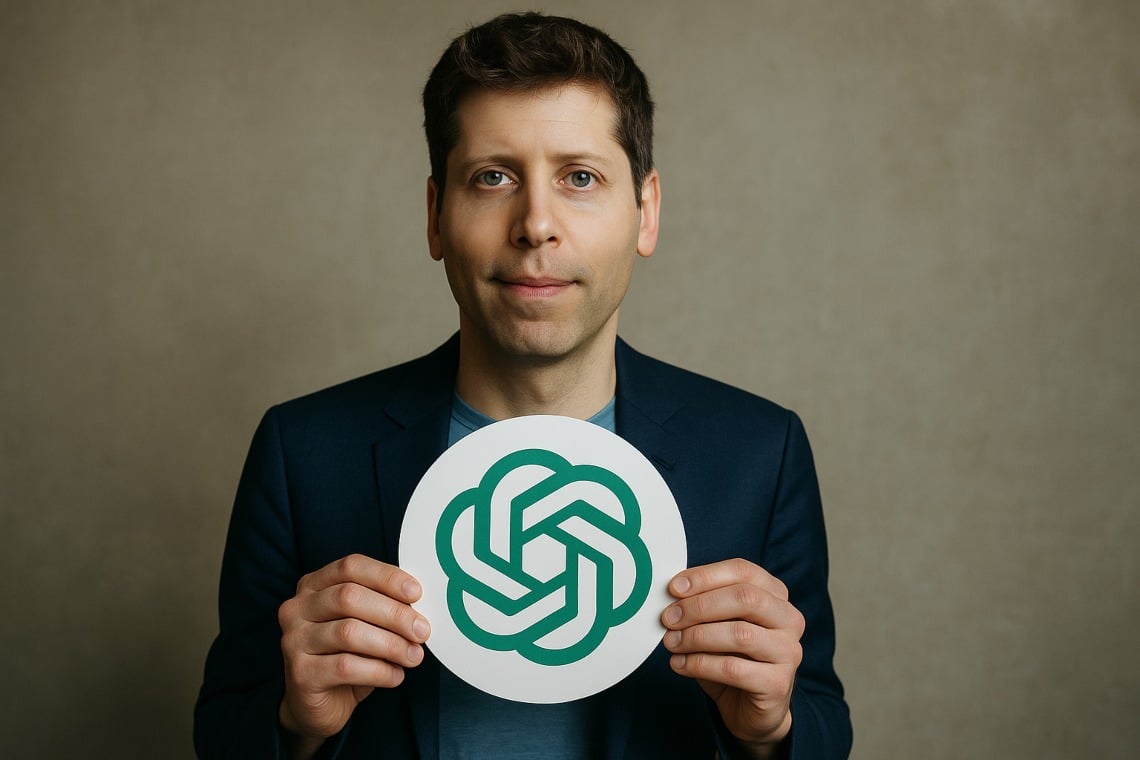the data from ChatGPT could be used against you

Talking with ChatGPT about your most private matters, you might find yourself without any protection: unlike conversations with a lawyer or a doctor, here your words can become legal evidence.
Why are conversations with ChatGPT at risk?
According to Sam Altman, CEO of OpenAI, there is a substantial difference between talking to a person who enjoys the so-called “legal privilege” – such as a lawyer, a doctor, or a therapist – and interacting with ChatGPT. While your confidences with professionals are protected by specific regulations, this does not happen in chats with artificial intelligence. Altman, during an interview on the podcast This Past Weekend with Theo Von, described this lack as “a huge problem”.
In practice, if there is a legal case or investigation, the discussions held with ChatGPT may be requested by courts. A risk underestimated by many users, who today increasingly share personal issues and very sensitive data with AI systems.
What does it mean to not have “legal privilege” with AI?
The concept of privilegio legale ensures that certain communications remain confidential and cannot be used against the person in court. Currently, when you speak with a lawyer, a doctor, or a therapist, your words are protected by this regime. However, Altman specified:
“We have not yet resolved this aspect when talking with ChatGPT.”
This has a direct consequence: anyone who has shared crucial data or confessions through the platform, in the event of disputes, could see them exposed in court.
The concern is all the more pronounced because, as highlighted by Altman’s interview, the use of AI for financial, psychological, and healthcare assistance is rapidly increasing. In this scenario, the lack of legal protection risks becoming a systemic vulnerability.
New regulations for ChatGPT and privacy: where do we stand?
Sam Altman did not just sound the alarm: he stated that he is in dialogue with policymakers and legislators, who recognize the urgency to intervene. However, clear legislation has not yet been defined. “It is one of the reasons why sometimes I am afraid to use certain AI tools – declares Altman – because I do not know how much of the personal information will remain private and who will gain possession of it.”
Therefore, an updated regulatory framework would be needed that at least partially equates data protection on AI to that of protected exchanges with healthcare and legal professionals. But the road is still long, and, at the moment, the responsibility remains with the user.
Surveillance and AI: where can it go?
The other side of the coin concerns the increase in surveillance. Altman’s concern is that the acceleration of artificial intelligence will lead to greater control over data by governments. “I fear that the more AI there is in the world, the more surveillance will increase,” he said. The fear is justified by the fact that, for reasons of national security or to prevent illicit activities, governments could easily request access to AI conversations.
Altman makes a clear distinction between the need for a certain compromise – “I am willing to give up some privacy for collective security” – and the risk that governments go “decidedly too far,” as has often happened in history. The warning is therefore twofold: not only is privacy on ChatGPT not guaranteed, but the future trend risks restricting it even more, in the name of control and prevention.
What changes for those who use ChatGPT: concrete risks and best practices
If you use ChatGPT to receive delicate advice – whether of a psychological, medical, or legal nature – you must be aware that no protective filter is active on your data. If tomorrow you were to be involved in a lawsuit or investigation, that information could be legally requested and used against you as well.
At the moment, the only real solution is to avoid entering sensitive personal data or crucial revelations in the chat with the AI. While waiting for regulation, this is the best practice recommended by the same leaders of OpenAI. Always keep in mind that even deleting chats does not offer an absolute guarantee of inaccessibility.
Is there a way to protect oneself now? What happens next?
At an individual level, the recommendation remains maximum caution: no technical tool can today guarantee “legal privilege” to your conversations with ChatGPT. If you want to act immediately, limit the use to generic or non-identifiable questions, deferring sensitive content to the appropriate venues.
However, the legal debate has just begun. According to Altman, “rapid political actions” will be needed to truly protect user privacy and freedom in the era of artificial intelligence. It remains to be seen who, among industry operators and legislators, will take the first step to fill this gap.
The future of privacy in ChatGPT and AI is still open: everything is at stake in the coming months, between legislative accelerations and new policies from big tech. Follow the discussion in the community and stay updated: the right to real privacy with AI is anything but guaranteed.

